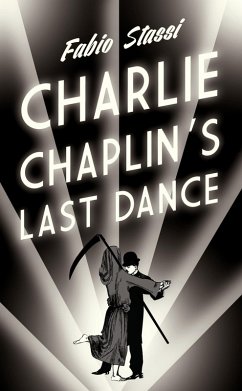'A day without laughter is a day wasted.' It is Christmas Day when Charlie Chaplin receives a visit from Death. The great actor is 82 years old, but not yet ready to face the final curtain. Desperate to see his teenage son grow up, the actor strikes a deal: if he manages to make Death laugh, he will win an extra year of life. As he awaits his final, fatal encounter, Chaplin composes an impassioned letter to his son, in which he attempts to tell him about his past, from his impoverished childhood in England (with an alcoholic father and a mother who went mad) to the heights of success on the silver screen in America, via stints in the circus and vaudeville, and odd jobs as a newspaper hawker, printer, boxer and embalmer. As well as being the story of the evolution of a comic genius, this is the story of the evolution of cinema and how a beam of light on a white screen fired the imagination of an entire nation. As in his silent films, Charlie's adventures are simultaneously tragic and comic. The narrative flickers at a frenetic clip from false starts and early failures to eventual triumph in the magical moment when - before the eyes of a stupefied film crew - Charlie became the Tramp: with a little moustache, a shuffling slantwise walk, a cane and a dusty bowler hat, one of the most iconic figures of the golden age of cinema was born.
Bitte wählen Sie Ihr Anliegen aus.
Rechnungen
Retourenschein anfordern
Bestellstatus
Storno









